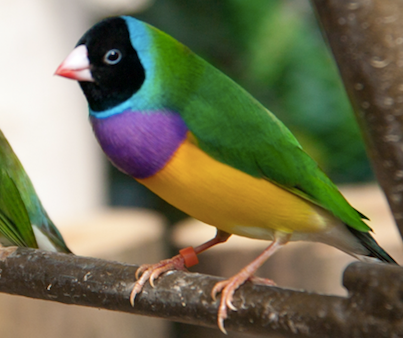Gouldian finch for sale
Additional information
$350.00
Gouldian Finch Overview
The Gouldian Finch (Erythrura gouldiae) is a small, colorful passerine bird native to northern Australia. It is highly regarded for its vibrant plumage and is often sought after by aviculturists and bird enthusiasts.
Here’s some key information about the Gouldian Finch:
Appearance: Gouldian Finches are known for their striking and diverse plumage colors. There are three distinct color variations, referred to as “head colors”: red-headed, black-headed, and yellow-headed. The body feathers can be blue, green, or yellow, with variations depending on the head color. Males typically have brighter and more intense colors than females, and juveniles have a duller appearance.
Diet: In the wild, Gouldian Finches primarily feed on a variety of grass seeds and small insects. In captivity, their diet should consist of a high-quality finch seed mix supplemented with fresh fruits, vegetables, and small amounts of live food such as mealworms and sprouted seeds. Clean, fresh water should always be available.
Habitat and Distribution: Gouldian Finches are native to the savannah grasslands and open woodland regions of northern Australia, particularly in the Kimberley region of Western Australia, the Top End of the Northern Territory, and parts of Queensland. They prefer areas with scattered trees and grassy vegetation.
Social Behavior: Gouldian Finches are social birds that typically form small flocks in the wild. They are known for their peaceful nature and can be kept with other finch species that have similar care requirements. However, they can show aggression during the breeding season, so it’s important to provide ample space and nesting options.
Breeding: Gouldian Finches are sexually dimorphic, meaning males and females have distinct physical characteristics. They reach sexual maturity at around 8 to 12 months of age. Breeding pairs require appropriate nesting boxes or baskets filled with suitable nesting material, such as grass or coconut fiber. They lay clutches of 4 to 8 eggs, and both parents participate in incubation and chick rearing.
Conservation Status: The Gouldian Finch is listed as near threatened on the IUCN Red List due to habitat loss and fragmentation caused by land clearing, altered fire regimes, and introduced predators. Additionally, selective breeding for specific color variations in captivity has reduced the genetic diversity of the wild populations. Conservation efforts focus on habitat protection, land management practices, and captive breeding for reintroduction programs.
If you are considering keeping Gouldian Finches as pets, it’s important to provide them with appropriate housing, a balanced diet, and a suitable social environment. They require spacious aviaries with plenty of perches and nesting options. Additionally, consult local regulations and ethical considerations regarding the acquisition of Gouldian Finches, as wild-caught individuals may have negative impacts on wild populations.
Suitable nesting materials for Gouldian Finches should be safe, clean, and appropriate for their nesting habits.
Here are some commonly used nesting materials for Gouldian Finches:
1. Grass: Fresh, clean grass is a natural and commonly used nesting material for Gouldian Finches. You can provide small strands of grass or hay for them to build their nests. Make sure the grass is free from pesticides, herbicides, or any other potentially harmful chemicals.
2. Coconut Fiber: Coconut fiber or coir is another popular nesting material for Gouldian Finches. It is lightweight, holds moisture well, and provides a soft lining for the nest. You can find coconut fiber specifically marketed as nesting material in pet stores or online.
3. Soft Nesting Wool: Some avicultural suppliers offer soft nesting wool specifically designed for finches. This material is soft, fluffy, and easy for the birds to manipulate and shape into their nests. Ensure it is made from natural fibers and free from any harmful additives.
4. Soft Feathers: You can provide small, clean feathers for the Gouldian Finches to incorporate into their nests. Feathers not only provide insulation but also add a natural touch to the nesting material.
5. Soft Plant Materials: Finely shredded, soft plant materials such as dried grasses or soft leaves can be used as nesting material. Ensure they are free from any toxins, mold, or pesticides.
6. Commercial Nesting Materials: There are commercially available nesting materials specifically designed for finches and small birds. These may include materials like cotton fibers, soft yarn, or other suitable nesting fibers. Ensure the materials are safe, non-toxic, and easy for the birds to work with.
Remember to provide a variety of nesting materials and let the Gouldian Finches choose the materials they prefer. It’s important to regularly clean and replace the nesting material to maintain proper hygiene in the nest box. Additionally, always monitor the birds’ behavior and ensure they are using the nesting material appropriately and not ingesting it excessively, as this can be harmful.
Free Standard Shipping with any online purchase of $50 (merchandise subtotal excludes store pick up items; merchandise subtotal is calculated before sales tax, before gift wrap charges, and after any discounts or coupons). Truck delivery and shipping surcharges on over-sized or extremely heavy items will still apply (these charges are indicated on the appropriate product information pages and will be displayed in the shipping subtotal of your order). Orders typically arrive within 3-6 business days. Items shipped directly from the vendor or to Alaska and Hawaii have longer delivery lead times. This offer does not apply to Alaska, Hawaii, Puerto Rico or Business Direct orders.
Related products
-
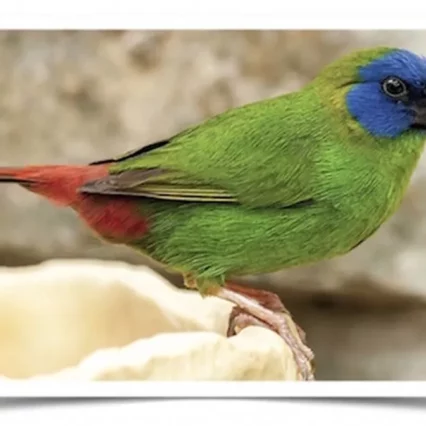
-
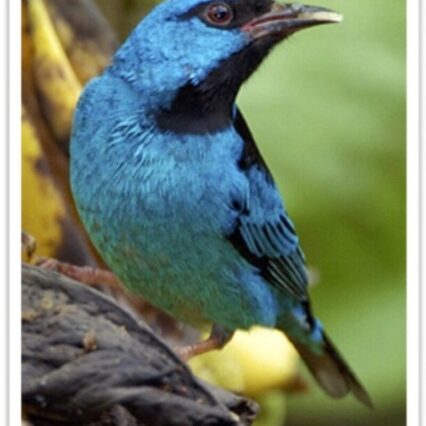
-
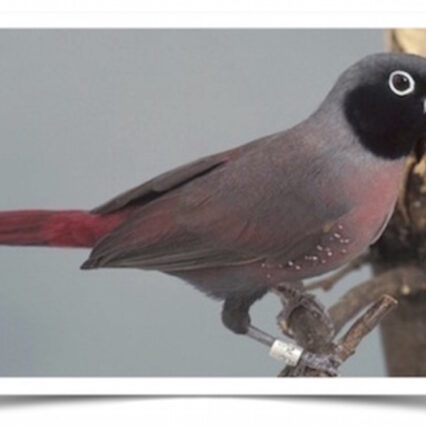
Buy Black-faced Firefinch Online
$113.99 -
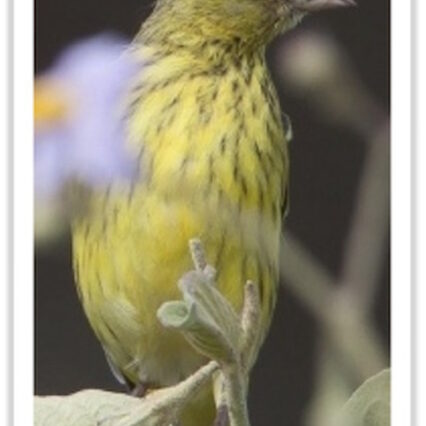
Buy African Citril Finch Online
$147.65
for order beore 11:00h!
1000S 8th Avenue, NY!
from verified users

